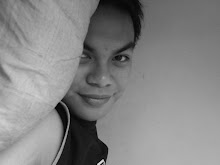I have left this blog for so long, I'm starting to get the guilts. I'm sorry, but the exams (of my life!) are coming up, so I won't be much around until at least after September. In the mean time I had the absolute pleasure of purchasing one of my favorite singers' album,
Genuine: Dramatic Coloratura Album by the absolutely great Alexandrina Pendatchanska, or as how she goes by nowadays:
Alex Penda. When I scoured the nets I couldn't find out a decent review of this album, so I think why not I put (an irreverent one of) my own?
Like most of the greats Miss Pendatchanska's instrument is never to everyone's taste. It is heavy, ponderous, extremely dark and vibrato-heavy, and sometimes wavers on pitch. By all accounts despite the impression from recordings and YouTube videos, it is not a large instrument (I heard it was the same with Callas, in which post-slimming down it was a cutting/biting voice rather than a large voice on its own. Still the best Gioconda
though). But this instrument is capable of doing everything and anything the score wants (which is great) and some more besides (which is awesome!). Pendatchanska is also a kind of vocal wunderkind, performing
Sempre libera at 17 (take that Lezhneva!).
We'll start from the superficialities. The cover art is to die for! It shows a picture of her, clad in black satin stole, her hands in what we call the Levine sign position, clutching both the stole and her heart. The focus is on the top of her chest and her neck, before the photo cuts off just above her lips.
Et voilà: this album is all about the lungs, the heart, the voice. A bold red GENUINE stamp over her hands, and this cover instantly becomes a classic. No hassle, and definitely no overdone Photoshop bombing cf. Netrebko's Verdi disc, hehehe.
The track list is covers the last years of 18th century up to mid-19th century. The first track is the gran scena from Act 2 of Rossini's
Ermione,
Essa core al trionfo. This follows with two Mozart selections,
Come scoglio and Donna Anna's rondo
Crudele!... Non mi dir. As you may suspect Pendatchanska is someting of a Mozartienne, specialising in his crazy bats like Donne Anna and Elvira, Vitellia and her Elettra, which had to be seen to be believed.
Then comes the final scene from
Anna Bolena before leaping forward to two Verdi selections (
Ernani, involami and Leonora's first aria from
Il trovatore), the disc closes with the final scene from
Roberto Devereux.
These are my conclusions: Like Sutherland, Pendatchanska is best when the music moves. Not necessarily in fast tempi, but as long the phrase is short or medium. Unlike Sutherland, Pendatchanska wavers in long-breathed phrases. This is not to say she have breathing problems such as Netrebko, in fact she took an extremely long phrase each in the Bolena and Devereux extracts which she manages by tapering the voice to a mere wisp of sound. She has a genuine trill as can be heard on YouTube, but it is absent in this recording. The voice also have what I call the Genaux dilemma: the vibrato increases in amplitude a the voice goes up, giving a false impression that it wobbles. It does not! But the heaviness of her vibrato is definitely scary. The voice is definitely comfortable in the lower and middle ranges, but her top can be glary and her acuti surprisingly thins out, much like Leontyne Price.
For all my complaints, hers is the most committed performer I have ever heard on disc. When she orders her Oreste to kill her betrayer (in the first track), her voice adopts an eerie straight tone, which is grating on a small instrument but definitely stuff of horror movies when done by a large instrument like Pendatchanska's. She also uses this effect in the Devereux extract, depicting the dying queen with as great success as she had on the stage.
She is unafraid to use unorthodox methods to get her points across. She goes sharp and throws out her R's like crazy, for example. And when the fiorature phrases are coming you could almost hear her getting her gears on (small swallowing sounds etc - I blame the recording engineers/mic placement). Her recitative work is first class, as can be expected from a Mozartienne and Handel specialist. That said, I find her Mozart selections in this disc a bit lacking. She does everything right, even the crazy leaps from the
Così excerpt and the crazy long cadenza in
Non mi dir, but I wish she included Elettra's arias instead.
The orchestra is the Bulgarian Symphony Orchestra, conducted by Eralso Salmieri. God forgives me, I don't know this guy but he conducts Mozart and belcanto as if painting by-the-numbers. The Bolena excerpt lacks imagination, ditto the Don Giovanni. At least he is responsive to Pendatchanska's needs. The album also features guest artists who, God forgives me, mar the recording with their contribution, but thankfully not enough.
Verdict: BUY IT, GODDAMN IT!!! Sell your house, sell your kidneys, your babies!!









